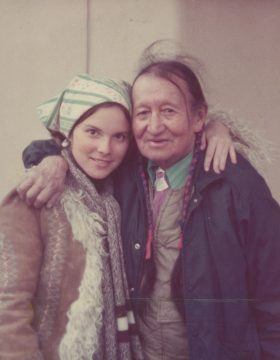 Francisco Goldman in the NYT:
Francisco Goldman in the NYT:
It is the late 1970s and Carolyn Forché is a 27-year-old poet with one published book of poetry, teaching at a university in Southern California. One day Leonel Gómez Vides, 37, arrives at her door with his two young daughters, claiming that he’s driven all the way from El Salvador just to talk to her. Forché has never met Gómez, though he’s a cousin of Claribel Alegría, whose poetry Forché, despite her rudimentary Spanish, wants to translate, and whose home in Mallorca she has visited. (Alegría’s daughter is a close friend.) There she heard Gómez warily described as a man involved in dangerous things, possibly even working with the C.I.A.
Gómez’s plan is to spend just a few days in California, and then drive home. It’s unclear to Forché why he’s come. He gives her a crash course on Salvadoran history from the pre-Columbian era to the present, when the tiny country, marked by staggering economic inequality, is ruled by a corrupt military that steals millions of dollars every year in United States aid, murders priests and political opponents, and tosses disappeared torture victims, including an American, from helicopters into the Pacific. It’s a country also increasingly terrorized by the right-wing death squads of Mano Blanco, the White Hand.
Looking back on Gómez’s visit in “What You Have Heard Is True,” a memoir of the consequences of that encounter, Forché reflects that he was translating “not only between languages, but also from one constellation of understanding and perception to another.”
More here.
